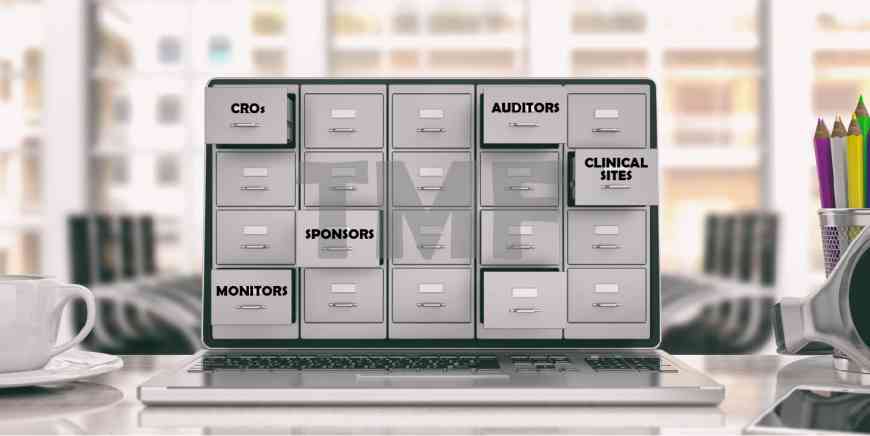
The Trial Master File refers to a repository of documents that collectively can be used by monitors, auditors, assessors and sponsors to demonstrate that a clinical trial has been conducted in compliance with Good Clinical Practice (GCP) and the approved protocol.
The TMF is a requirement under GCP, and a list of Essential Documents that should be available before the clinical phase of the study starts, those that should be collected / added during the conduct of the study, and finally those that must be collected after completion or termination of the trial, is presented in part 8 of the ICH E6 Good Clinical Practice Guidance.
The reason why the TMF is so important is that it permits the study to be independently recreated from these study records. TMF is a quality process, allowing to document all of the activity that has been performed during the study. This is critical in ensuring patient rights are respected and that regulators have access to robust, reliable clinical data at the time of the marketing authorisation application.
However, to ensure the TMF is fit for purpose, it is essential to ensure that the TMF is set up to reflect the documents that are expected from the study. This will assist in both the filing of information, and equally as important, their retrieval. If a document is not easily located, this may cause the auditor to investigate further into the study and ask more questions. It might indicate some documents are missing and the archive process has not been effectively executed.
It is worth highlighting at this point that a TMF can be either a hard copy repository, or more usually now, an electronic equivalent. Similar care is needed in setting up the architecture of the file, but in addition, appropriate validation and audit trail facilities can help in document tracking (when were documents filed, updated and/or retrieved). One further point is to ensure data and documents are held in such a way as to ensure their integrity and readability over the length of the study and archival period.
Although the TMF has been a requirement of GCP since its’ inception, a revised version of the reflection paper has been incorporated into the EMA Guideline, which has been prepared as part of the work related to the implementation of the new Clinical Trial Regulation (EU) 536/2014.
The Guideline has two aims:
To collate and explain the requirements for the TMF as covered in the Regulation and ICH-GCP E6
To assist organizations in maintaining a TMF that facilitates trial management, GCP compliance and inspection.
The document also addresses archiving of the TMF, clarifying retention times, in particular expectations in case of digitization and consecutive destruction of paper documentation
Considerations when designing your TMF:
As discussed, a minimum list of “Essential Documents” (which include the study protocol, investigator brochure, informed consent, trial insurance etc) is given in section 8 of the ICH E6 R2GCP guideline. This information can then be used in designing your TMF (the same principles exist both for hard copy and digital documents in an eTMF). Don’t forget that the TMF is very much a living repository, and new or amended documents will need to be added, and retrieved, as required.
You will also need to think about security (controlled access for hard copy, password protection for an eTMF), definition of original records (e.g. if in special situations, electronic records may need to be used in place of hard copy), and archiving (when, where, how).
Given the complexities of setting up and maintain a TMF, appropriately training is considered critical. This includes ensuring staff understand the importance of routinely keeping the TMF up to date (and not waiting for the announcement of an audit !)
It therefore helps to have well-structured procedures and processes in place that promote the collaborative exchange of study records between the CRO, the Investigational sites and sponsor study teams, to ensure that the TMF is complete and accurate.
Further reading:
ICH E6 R2 GCP guidelines (pdf)
EMA Guideline EMA/INS/GCP/856758/201 (pdf)






